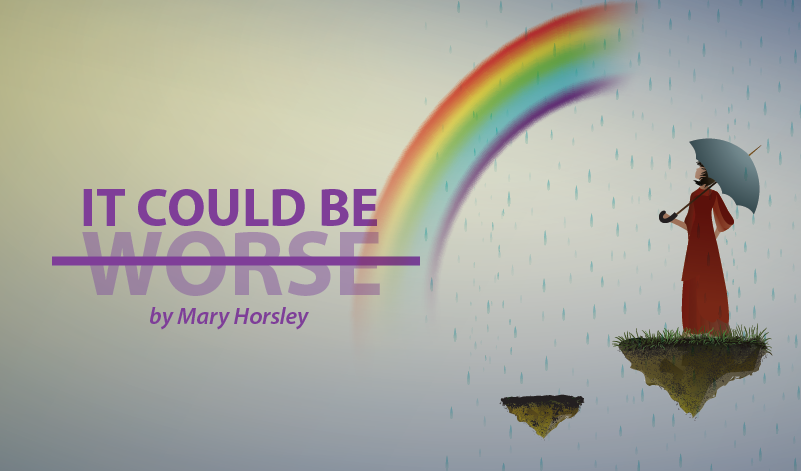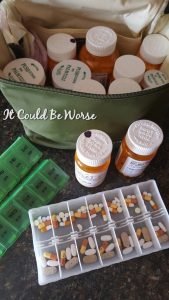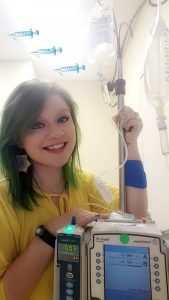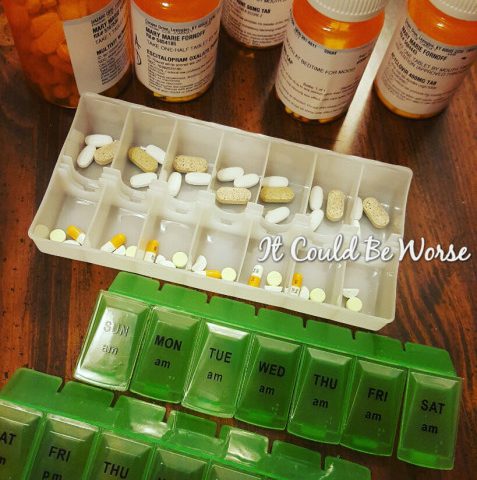
My last article, “Crohn’s Disease and Diet: There Is No Magic Solution,” seems to have caused some disturbances and backlash.
This was never the intention. Rather, I wanted others to remember that each patient is different, there are symptoms beyond digestion, and there is yet to be a Crohn’s disease cure.
So, here, I wanted to discuss some of the options for IBD treatments and some differences in patients and how they respond.
My personal diagnosis took years. Now it is taking years to find a treatment that works for me; I have yet to be in remission. Some find it easier than others and some battle their IBD for years before finding relief. Some only find side effects, diet limitations, medication dangers, and weakened immune systems.
Several diets exist ― all-liquid, specific carb, low FODMAP, vegan, Paleo, grain- and lactose-free, sugar-free, high- and low-fiber, juicing, even high-fat ― and each has its own studies being researched, its own doctor seal of approval, and its own patient following that swears by their individual plan.
For some, gluten and acidic foods upset their ulcerations, and for others, fruits and vegetables or a salad can do the same. Some patients avoid small foods, like nuts or popcorn, to avoid obstructions or blockages. For others, all foods seem to fail them.
A lot of patients with IBD can suffer malnutrition and avoid meals altogether, just to avoid their digestive-related symptoms. But we must remember, there are several other symptoms beyond the digestive system, and I discuss these symptoms in my “Beyond the Bathroom” series.
As I have mentioned in previous articles, including “Crohn’s Disease Medications: Part Four in a Series,” from my personal experience, doctors begin with a pyramid-style plan, starting with medications that have the least number of side effects, or that are least harmful, at the bottom of the hypothetical pyramid.
Some doctors begin with dietary changes and a diary of foods and symptoms, often with a steroid for relief.
Some doctors use the same pyramid, but upside down, starting with the more aggressive medications first, but these also are potentially more harmful. While these medications may induce remission, other, less dangerous medications may work for some patients, too.

Depending on the specifics of your individual disease and treatment progress, the location of your inflammation, related circumstances, and decisions made by you and your doctor, there are a plethora of medications to try, with no set plan for remission.
There are medications some doctors prefer to try before ever beginning biologic options, starting bottom up. These options can include steroids such as prednisone, immunosuppressant medications, anti-inflammatory medications, and biologics, like Entyvio (vedolizumab), Humira (adalimumab), and Remicade (infliximab).
 And, just like there are many treatment plans, medications, or diets, there are also many theories. There are theories that diet causes or affects Crohn’s disease. There are theories that stress causes or affects Crohn’s disease. There are theories that several contributing factors lead to or cause Crohn’s, and those that suggest it’s purely bad luck.
And, just like there are many treatment plans, medications, or diets, there are also many theories. There are theories that diet causes or affects Crohn’s disease. There are theories that stress causes or affects Crohn’s disease. There are theories that several contributing factors lead to or cause Crohn’s, and those that suggest it’s purely bad luck.
There are even theories that suggest lifestyle can affect Crohn’s disease, but there are also plenty of seemingly healthy people who are diagnosed, suggesting the answer is not just a lifestyle change. And with each of these theories, there are testimonies that suggest they are on track and testimonies suggesting they aren’t.
But, alas, there is no specific evidence that can prove these things, just like there is no specific evidence of a cure. There is not one correct treatment plan, no set symptom list, no specific diet, no known cure for Crohn’s disease.
For some patients, like myself, there is no food that is a guarantee or a food that helps. I seem to suffer no matter my diet. I know this to be true because I have suffered consistently for over three years, every single day. I have tried almost all of these plans in my three-year journey to find remission, so far. Most have been unsuccessful for me, and now I am on my sixth medication.

Crohn’s is not a straightforward condition with a straightforward plan to healing. Like myself, you have to find the treatment, diet, or medication that works for you and your individual Crohn’s disease.
With Crohn’s medications, your doctors may suggest a different treatment plan from what I have tried. I cannot, and would not, offer medical advice; I can only share what I know from my personal experiences. Remember, my Crohn’s disease is individual for me, and what works for me may not necessarily work for you.
For me, It Could Be Worse.
Remember, Crohn’s disease and ulcerative colitis have no cure, and complications from them can worsen over time without remission.
***
Note: IBD News Today is strictly a news and information website about the disease. It does not provide medical advice, diagnosis, or treatment. This content is not intended to be a substitute for professional medical advice, diagnosis, or treatment. Always seek the advice of your physician or another qualified health provider with any questions you may have regarding a medical condition. Never disregard professional medical advice or delay in seeking it because of something you have read on this website. The opinions expressed in this column are not those of IBD News Today, or its parent company, BioNews Services, and are intended to spark discussion about issues pertaining to IBD.


Your previous article didn’t “seem” to cause disturbances, it did, mainly because you dismissed treatments that included diet, because that didn’t work for you. I think most IBD sufferers today are better informed than to think diet or lifestyle caused their disease, but many do know that diet and lifestyle, with or without drugs, can effectively treat their disease. Treatment is all we have…until there is a cure. Treatments can make a patient asymptomatic, leaving the underlying inflammation there to cause long-term damage, and finding the right treatment is not the same for everyone. It’s not wrong to try, just because it’s not a cure.
Alexandra, I thank you for reaching out. But I disagree. While things may work for some, that is not what treatment is. None of these options are ‘treatments’ for all IBD sufferers, they are just management for a few until the next thing comes. If my article caused disturbances with you, that was not my intention, but I do not apologize for my opinion or my personal patient perspective and the journey I have had. Each article is from my viewpoint. Diet was not a treatment for me and it is not a treatment for Crohn’s, just like many drugs haven’t been a treatment for me. These are just ways of IBD management. Yes, you can be asymptomatic, but for me, does diet help my personal joint pain? My personal skin sores? My personal fatigue, all over pain I experience or my own rectal bleeding? No, it doesnt. Diet does not curb wall thickening or abscess development. I didnt have 2 rectal surgeries because of diet or lifestyle. Fistulas are not caused or helped by diet. And my lifestyle choices do not either. I do not do this to myself. I never said it was wrong to try these things, just that it not the fix all or cure all. Thanks.
“Treatment”: medical care given to a patient for an illness or an injury.
Enough said.
There is no known proof or evidence that diet is considered a ‘treatment’ for Crohn’s or IBD. It takes more than a few claims or a small percentage of those who have been ‘helped’ to prove anything, we’re talking several longterm studies with control groups, regular bloodwork, regular colonoscopies, etc. Anything less isn’t proof.
I want to believe that diet and lifestyle changes are the answer but I am also not looking for something that will improve my symptoms if on the inside, this disease is still wreaking havoc on my intestines. While I would rather these diets work before going on biologic drugs, I do not want to waste my time following these “cures” that people claim are cures just because they seem to “feel” better and not because a scope showed healing or an improved bowel state.
Also, you only chose the first ‘definition’ of treatment without posting the second, you cannot pick and choose. “Treatment: a session of medical care or the administration of a dose of medicine; the combating of a disease or disorder.” Diet does not combat IBD.
Again, thanks for your opinion. This article is my opinion and personal journey. ‘Enough said.’
http://ibdnewstoday.com/2017/01/03/special-diet-sends-children-with-crohns-and-ulcerative-colitis-into-remission-in-study/#
Note: I stopped at the first article I found this time too.
Me, too. Thanks. 👍🏻
https://crohnsdisease.com/living/unsolicited-food-advice/